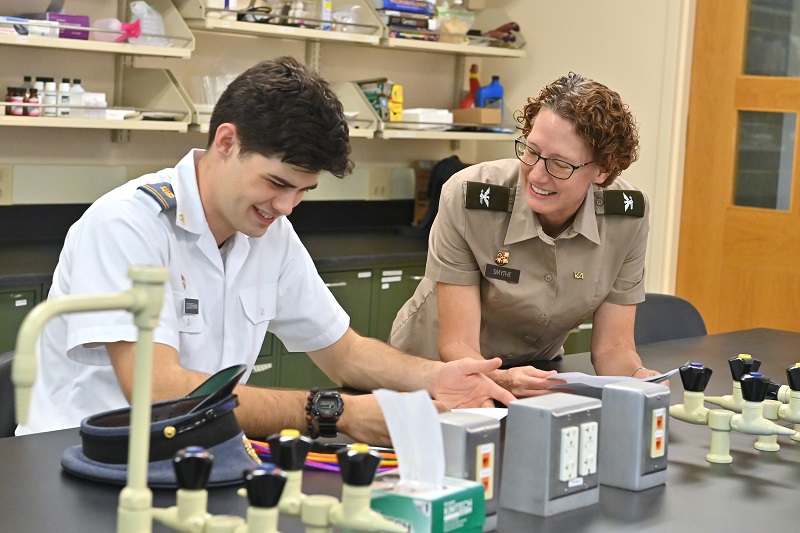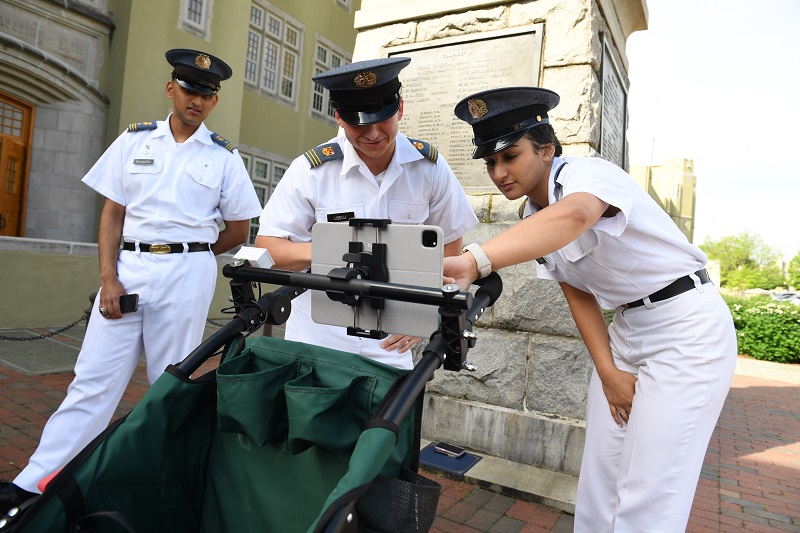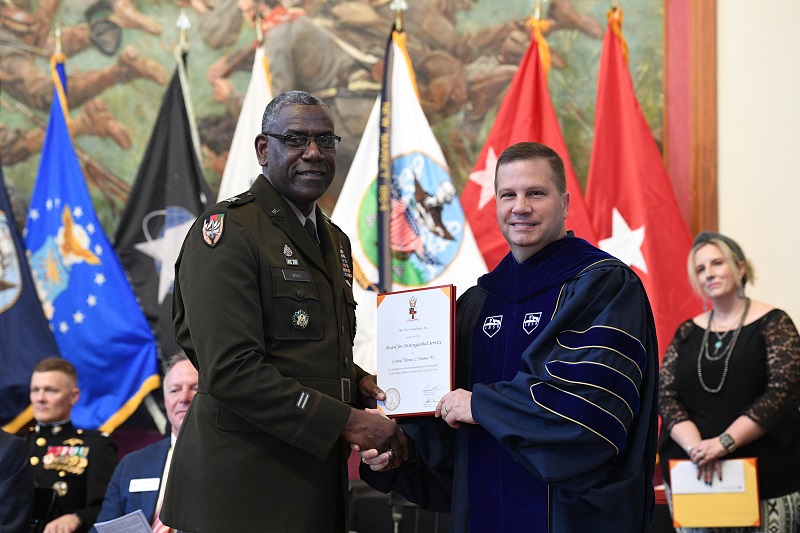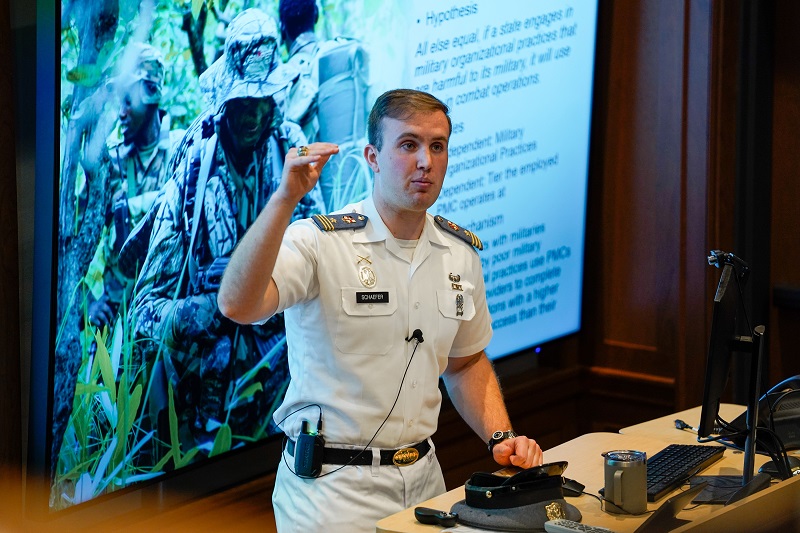Forging 21st Century Leaders: Strategic Plan 2024-2034
Forging 21st Century Leaders
Strengthen Academic Excellence Initiative No. 2
GOAL: Provide the nation and commonwealth’s future leaders with a world-class education and training regimen.
Historically, higher education has been a place for change.
Since the early days of post-secondary education in the United States, colleges and universities have been innovating through research and pedagogy. We must continue to adapt to teaching 21st century cadets, fostering innovation in our classrooms and laboratories.
—Brig. Gen. Robert “Bob” Moreschi,“VMI needs to continue enhancing innovative approaches to ensure a learning environment for cadets that will set them up for success in their chosen academic path.”
Dean of Faculty and Deputy Superintendent for Academics
Objectives: Guiding the path forward
1
Enhance effective pedagogical approaches to promote cadet engagement and enhance academic achievement.
VMI has a renowned reputation for its commitment to highly personalized educational experiences. With average class sizes of about 16 and a current student-to-faculty ratio of approximately 10 to 1, we are a standout among competitors in providing engaging learning experiences. To continue to build on prior successes and to integrate innovative educational approaches, VMI seeks to leverage the science of academic motivation and human learning. Three significant actions are planned: (1) evaluate, and revise, as needed, the core curriculum, to ensure the courses and content remain relevant and the instructional practices are effective, (2) increase faculty development in the science of learning and academic motivation, and (3) evaluation and revision of faculty teaching to align with evidence-based professional development.


2
Integrate new technology into our educational and organizational processes.
We are committed to staying current with changes within the higher education landscape. VMI will remain a leader in the industry by deploying new technologies that are appropriate to increase learning and motivation and that educate, train, and prepare cadets for success post-graduation. This includes creating hybrid classrooms that provide classroom access to traveling cadets and purchasing state-of-the-art lab equipment for STEM courses. These efforts will help VMI attract talented cadets and faculty, provide more opportunities for grant-funded research, and ensure cadets are better prepared for varied workplaces.

3
Recruit, retain, and promote distinguished faculty with expertise in emerging fields.
To educate the best and brightest cadets in ways that provide an exceptional educational experience, we must attract, develop, and retain outstanding professors able to update and improve upon the relevance of VMI’s educational programming. Hiring processes will focus on and be dedicated to finding faculty who are committed to the mission of the Institute, alumni and non-alumni alike, and who have a strong interpersonal interest in the daily lives of cadets. Hiring VMI alumni into faculty positions is an essential characteristic in maintaining the culture of the Institute . VMI faculty do more than teach and publish, they lead by example. We want to continue to attract faculty of high integrity and capability who want to serve as role models, grow personally and professionally, actualize their full potential, and contribute significantly to their discipline and the Institute’s mission.


4
Strengthen high-impact practices and experiential learning, such as undergraduate research, global learning, internships, and service-learning activities.
Participation in high-impact practices currently offered by VMI, including undergraduate research, internships, and study abroad, are shown to enhance learning and improve retention. Given their importance to cadets’ learning and success, we want to maximize the potential of these high-impact practices. Achieving this end will require examining our current funding support for these practices and leveraging new research and services offered by leading organizations such as the American Association of Colleges and Universities (AAC&U).

